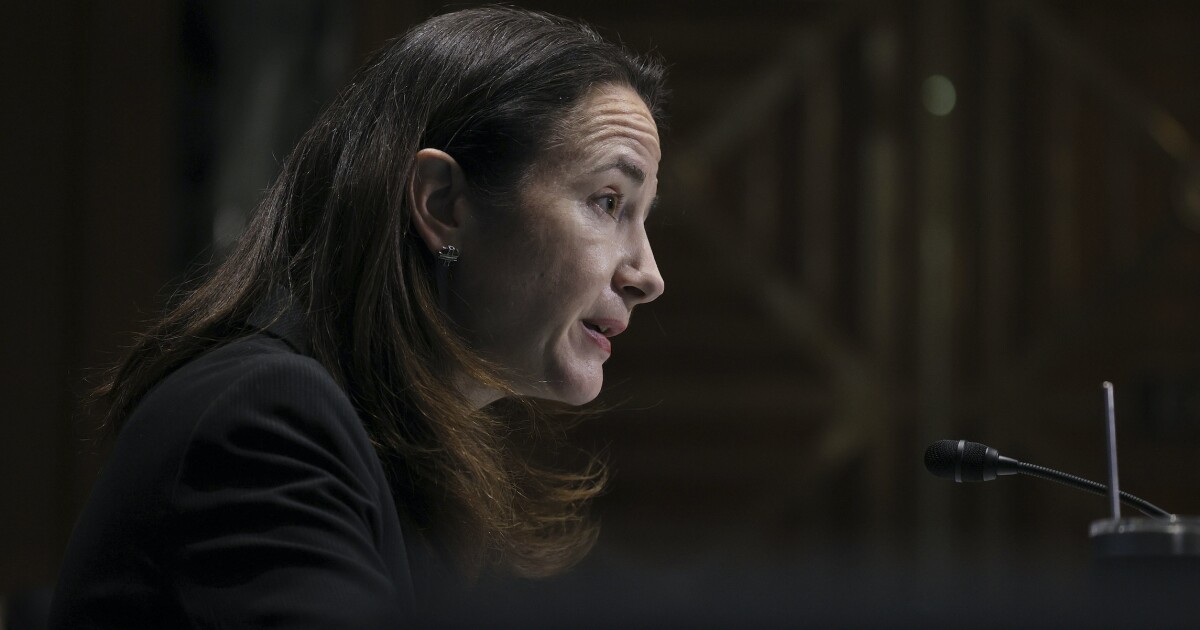

The U.S. and U.K. intelligence communities have repeatedly tried to “pre-bunk” Russian military plans and their disinformation campaigns surrounding the war in Ukraine.
Director of National Intelligence Avril Haines noted in a Thursday interview on BBC Radio 4 with Sir Jeremy Fleming, U.K. Director of GCHQ, that authoritarian regimes have an “asymmetric advantage” in “effectively controlling the information to their populations,” though the U.S. and U.K. have since worked to combat that, though there have been limitations in their success.
YEAR IN REVIEW: THE PENTAGON’S 2022 DEFINED BY HELPING UKRAINE IN WAR WITH RUSSIA
Deceiving the Russian people about the nature of the war has been a crucial part of the Kremlin’s strategy, going as far as only referring to it as “a special military operation,” and leaders have repeatedly used false accusations of Nazism against Ukraine to justify its invasion. Simultaneously, the U.S. and U.K. have repeatedly declassified and released intelligence preempting or uncovering Russian plans, which often include accusing one party of what they’re about to do.
“I watch our conversation kind of moving forward and recognized how important the battle is over the information space in so many different areas for our society and this sort of competition between authoritarian states and democratic states, this is among the key pillars I think that we’re sort of trying to manage in these areas,” she explained. “So we watch as authoritarian states take advantage of that open information space and promote their own narratives and exacerbate divisions in our society, and I think this is something that was sort of a growing area for intelligence communities.”
“We obviously tried to counter disinformation that the Russians were looking to put out — we saw that they were looking to create a pretext for invasion, and we were looking to debunk that and help people understand that this was a false narrative,” the DNI added. “By finding ways to declassify certain information while still protecting our sources and methods, so we don’t lose the access that is so critical to our work.”
Their success was mostly contained to the Western world.
“At the same time, what is clear as you sort of look back at the situation, is that our impact was far greater in the West than it was in other places in the world,” Haines continued. “So when it came to Russia, we had basically no impact. You know the people of Russia had controlled information provided to them for the most part, very hard to penetrate in effect, but … you can sort of understand that in the Russian space, you recognize how much effort the Russian government Putin puts into controlling information in Russia but we also saw is that we were not that impactful in other countries that already had sort of taken on the narrative of what the Russians were pushing and the Russians engaged in a very concerted information campaign and around the world on these issues.”
CLICK HERE TO READ MORE FROM THE WASHINGTON EXAMINER
Russian Foreign Minister Sergey Lavrov told Russian-state media Tass earlier this week that Ukraine must meet their required “demilitarization” and “denazification” of the four annexed Ukrainian territories otherwise, “the Russian army will solve the issue,” in one of their more recent invocations of the false Nazi accusations.
In October, Russia claimed Ukraine was preparing to use a radioactive “dirty bomb,” while the U.S., U.K., and France issued a joint statement calling the allegation a “pretext for escalation by Russia.” In August, Ukraine accused Russia of planning to stage what would look like a “large-scale terrorist attack” on the Zaporizhzhia nuclear plant and falsely blamed Ukraine for endangering Europe. Both examples occurred after the White House laid out last January, a month before the war began, that a Russian “false flag” operation in eastern Ukraine could be used as a pretext to invade the country.







